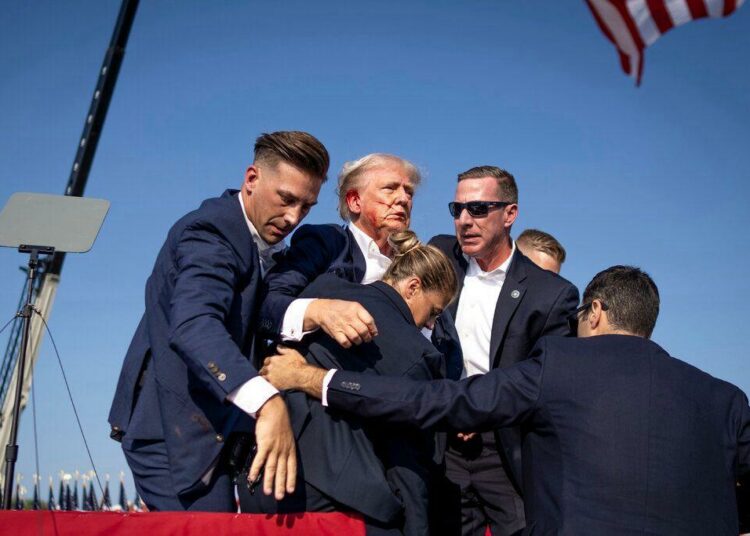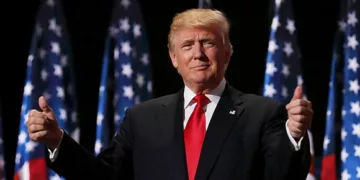An independent review panel has recommended a major overhaul of the United States Secret Service’s leadership following its findings on the security failures surrounding the July 13 attempted assassination of former President Donald J. Trump.
The panel’s report, commissioned by the Department of Homeland Security, called for new leadership from the private sector and a sharpened focus on protective duties, leaving behind the agency’s historic role in financial crime investigations.
The recommendation, being part of a report released on Thursday, outlined several deficiencies, including the failure to secure a building from which a gunman fired eight shots at Trump during a rally in Butler, Pennsylvania three months ago.
The panel attributed the lapses to a lack of “critical thinking” among agents and supervisors. Panel members expressed concern over an apparent “lack of ownership” displayed by Secret Service agents, who failed to take responsibility both in the lead-up to the rally and in the aftermath. The report criticized agents for neglecting to engage in self-reflection, noting, “They have done little in the way of self-reflection in terms of identifying areas of missteps, omissions or opportunities for improvement.”
Janet Napolitano, former Secretary of Homeland Security and a panel member, remarked on the agency’s culture, “The Service has become insular and stale. It is time for the service to kind of break out and to reach out beyond its own agency to bring in talent that can really take a fresh look at what it is they do, and how they do it.” The Secret Service has had only one director from outside its ranks in the past century, illustrating the agency’s deep-rooted traditions.
The panel, which included Frances Fragos Townsend, David Mitchell, and Mark Filip, conducted 58 interviews and examined over 7,000 documents. Their report concluded that the Secret Service fell short of its goal to be “the world’s leading governmental protective organization,” citing the July 13 events as evidence.
While the agency has taken steps to bolster Trump’s security cover, including assigning additional personnel, the panel was critical of the Secret Service’s decision to place an inexperienced site agent in charge of the Butler rally’s security planning. The agent, who joined the Secret Service in 2020, had limited training for such an event. Another agent, assigned to operate a drone detection system at the rally, had only informal training and faced significant technical challenges, resulting in an operational failure when a drone flew over the rally.
“Both examples demonstrate the potential role that inexperience by Trump detail personnel may have played in certain aspects of the planning for and execution of the July 13 rally,” the panel noted.
The report also highlighted a concerning oversight: as the gunfire erupted, Trump’s upper body was exposed, indicating insufficient protective measures by agents on the ground. The panel recommended additional training for agents on properly shielding protectees from potential threats.
Since the assassination attempt, six agents have been placed on restricted duty, including the site agent responsible for the Butler event and five agents from the Pittsburgh field office.
Meanwhile, former Secret Service Director Kimberly A. Cheatle has resigned amid internal divisions regarding the assignment of blame.
The panel’s recommendations extended beyond immediate security measures to institutional reforms, including ongoing training and aerial surveillance for all outdoor events. The report emphasized that more funding alone is not a solution: “If the remediation and reform dialogue around the failures of July 13 devolves into a discussion about how much additional money the service should receive, critical lessons from July 13 will have been lost.”











